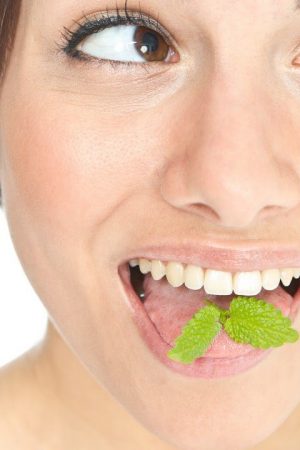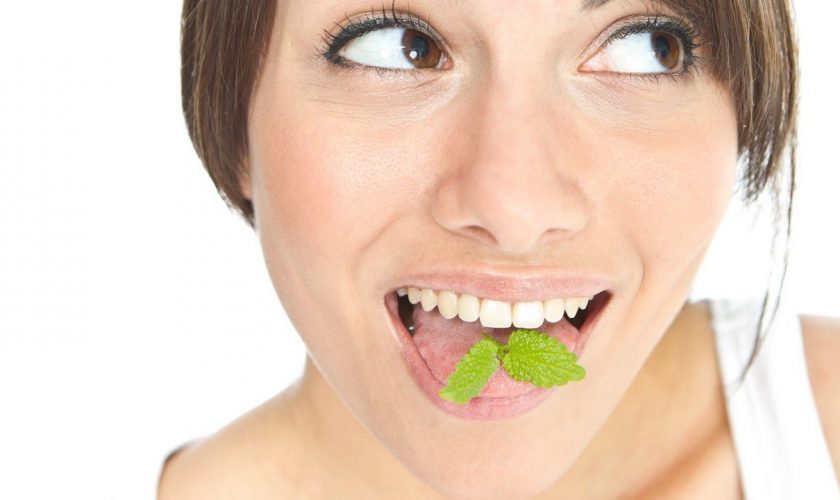Bad breath, medically called halitosis, can result from poor dental health habits and may be a sign of other health problems. Bad breath can also be made worse by the types of foods you eat and other unhealthy lifestyle habits.
Causes
Potential causes of bad breath include:
Tobacco
Tobacco products cause their own types of mouth odor. Additionally, they increase the chances of gum disease which can also cause bad breath
Food
The breakdown of food particles stuck in the teeth can cause odors. Some foods such as onions and garlic can also cause bad breath. After they are digested, their breakdown products are carried in the blood to the lungs where they can affect the breath
Dry mouth
Saliva naturally cleans the mouth. If the mouth is naturally dry (for instance, in the morning) or is dry due to a specific disease (such as xerostomia), odors can build up
Dental Hygiene
Brushing and flossing ensure the removal of small particles of food that can build up and slowly break down, producing odor. A film of bacteria called plaque builds up if brushing is not regular. This plaque can irritate the gums and cause pockets of build-up between the teeth and gums called periodontitis. Dentures that are not cleaned regularly or properly can also harbor bacteria that cause halitosis
Crash Diets
Fasting and low-carbohydrate eating programs can produce halitosis; this is due to the breakdown of fats producing chemicals called ketones. These ketones have a strong aroma
Drugs
Certain medications can reduce saliva and, therefore, increase odors. Other drugs can produce odors as they breakdown and release chemicals in the breath. Examples include nitrates used to treat angina, some chemotherapy chemicals and some tranquilizers, such as phenothiazines. Individuals who take vitamin supplements in large doses can also be prone to bad breath.
Mouth, nose and throat conditions
Sometimes small, bacteria covered stones can form on the tonsils at the back of the throat (tonsilloliths) and produce odor. Also, infections or inflammation in the nose, throat or sinuses can cause halitosis
Foreign body
Bad breath (especially in children) can be caused if they have a foreign body lodged in their nasal cavity
Diseases
Some cancers, liver failure and other metabolic diseases can cause halitosis due to specific mixes of chemicals that they produce. Gastroesophageal reflux disease (GERD) can cause bad breath due to the regular reflux of stomach acids.
Treatment
Since most cases of halitosis originate from inside the mouth, your first step should be a re-evaluation of your basic brushing and rinsing technique. While cleaning the teeth is necessary, it is of paramount importance that you give extra focus to the tongue—this is where a large amount of the bacteria lives that’s causing your bad breath. Scrape the tongue, then floss and rinse. Remember that brushing alone cleans only 25% of your mouth. Add rinsing to get your whole mouth clean.
In most cases, your dentist can treat the cause of bad breath. If your dentist determines that your mouth is healthy and the odor is not of oral origin, you may be referred to your family doctor or to a specialist to determine the odor source and treatment plan. If the odor is due to gum disease, for example, your dentist can either treat the disease or refer you to a periodontist, a dentist who specializes in treating gum conditions.
Remedies
Halitosis can cause significant worry, embarrassment and anxiety but, generally, it is relatively easy to remedy. Simple home remedies and lifestyle changes, such as improved dental hygiene and quitting smoking, can often remove the issue.
Brush and Floss
Daily tooth brushing along with flossing are the most important actions you can take to ward off bad breath. According to the American Dental Association (ADA), if you neglect to brush and floss daily, food particles can linger in your mouth, causing bad breath. So, it’s recommended to brush two times a day for at least two minutes.
Clean Your Tongue
Cleaning your tongue can effectively decrease halitosis-causing compounds. These compounds form on your tongue and in your mouth when bacteria and amino acids combine, emitting an unpleasant sulfur-like smell. So cleaning your tongue regularly is important in fighting halitosis. Products like Colgate® 360 Toothbrush, with its unique tongue cleaner, remove up to 96 percent more odor causing bacteria to eliminate bad breath.
Eat Healthy
It’s common knowledge that certain foods like raw onion or garlic cause bad breath. Such foods, when ingested and excreted by the lungs, cause halitosis. But avoiding acidic foods (like vinegar) or high-fructose foods (like sugary cereal) cuts down on bad breath too. Both acids and sugars increase production of bacteria and bad breath.
Drink Water
Drink plenty of water and swish cool water around in your mouth. This is especially helpful to freshen “morning breath.”.
Lemon and Orange
Chew a piece of lemon or orange rind for a mouth- freshening burst of flavor. (Wash the rind thoroughly first.) The citric acid will stimulate the salivary glands—and fight bad breath.



